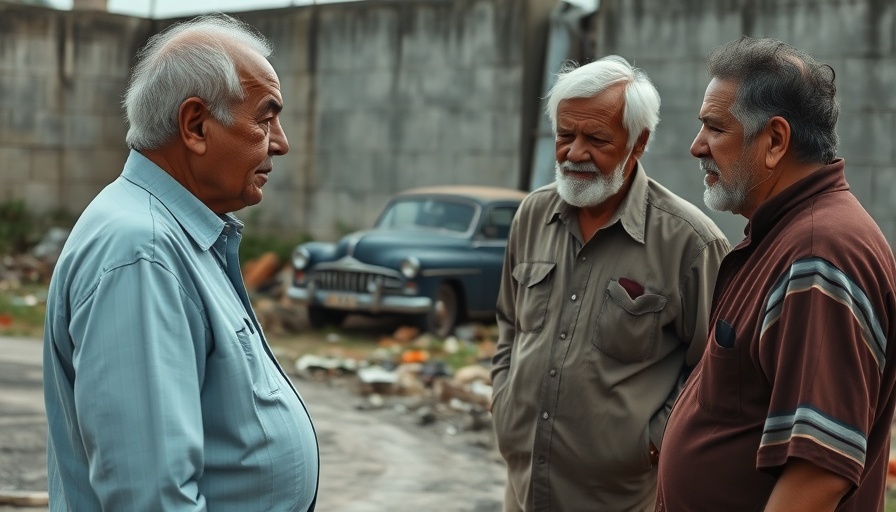
Armenia and the Unraveling of History
In the heart of the Caucasus lies Armenia, a nation steeped in a rich Christian heritage yet perpetually embroiled in a struggle for self-determination. As the world acknowledges Armenia's status as the first Christian nation, it simultaneously witnesses the painful clash of modern geopolitics that hinders its sovereignty. The complexities of Armenia's regional dynamics, influenced historically by empires such as Russia, Turkey, and Iran, have woven a narrative of survival against relentless adversities.
The video 'Armenia's struggle for land and identity in the Caucasus' delves into the multifaceted issues facing Armenia today, prompting a deeper analysis of the ongoing conflicts and historical injustices.
The Lingering Ghosts of Conflict
The enduring conflict over Nagorno-Karabakh is emblematic of Armenia's existential challenges. This region, predominantly Armenian before its conflict with Azerbaijan, saw decades of brutal turmoil and bloodshed, a direct consequence of Stalin's arbitrarily drawn borders that forced Armenians into a precarious position. The historic injustices faced by the Armenian people echo through generations, raising fundamental questions about cultural identity and territorial integrity amid external manipulation.
Current Geopolitical Realities: Power Plays and Economic Isolation
Today, Armenia finds itself isolated, its sovereignty increasingly threatened by neighboring Azerbaijan's aggressive maneuvers and the strategic interests of global powers. As Azerbaijan fortifies its military alliances, particularly with Turkey and Israel, Armenia must navigate a treacherous political landscape marked by distrust and betrayal. The reliance on Russian support has proven to be a double-edged sword, as Armenia's interests often succumb to broader geopolitical games dictated by Moscow.
The Need for International Solidarity
As Europe shifts its focus to gas supplies from Azerbaijan, Armenia’s plight seems to fade into the background, overshadowed by the more immediate strategic interests of powerful nations. The lessons from this enduring conflict extend beyond the borders of the South Caucasus; they signal a clarion call for international accountability and advocacy for human rights. The recurring themes of ethnic cleansing and cultural erasure demand global attention and action against the forces that perpetuate such injustices.
With numerous lives upended and the haunting specter of displacement looming over Armenian communities, the international community must engage with the narrative of resilience that defines Armenian identity. Acknowledging history is critical, but it is equally essential to foster conversations that challenge systemic inequities threatening nations like Armenia. The world must not only witness but engage, support, and stand in solidarity with Armenia as it shapes its future amidst the winds of change.
 Add Row
Add Row  Add
Add 




Write A Comment